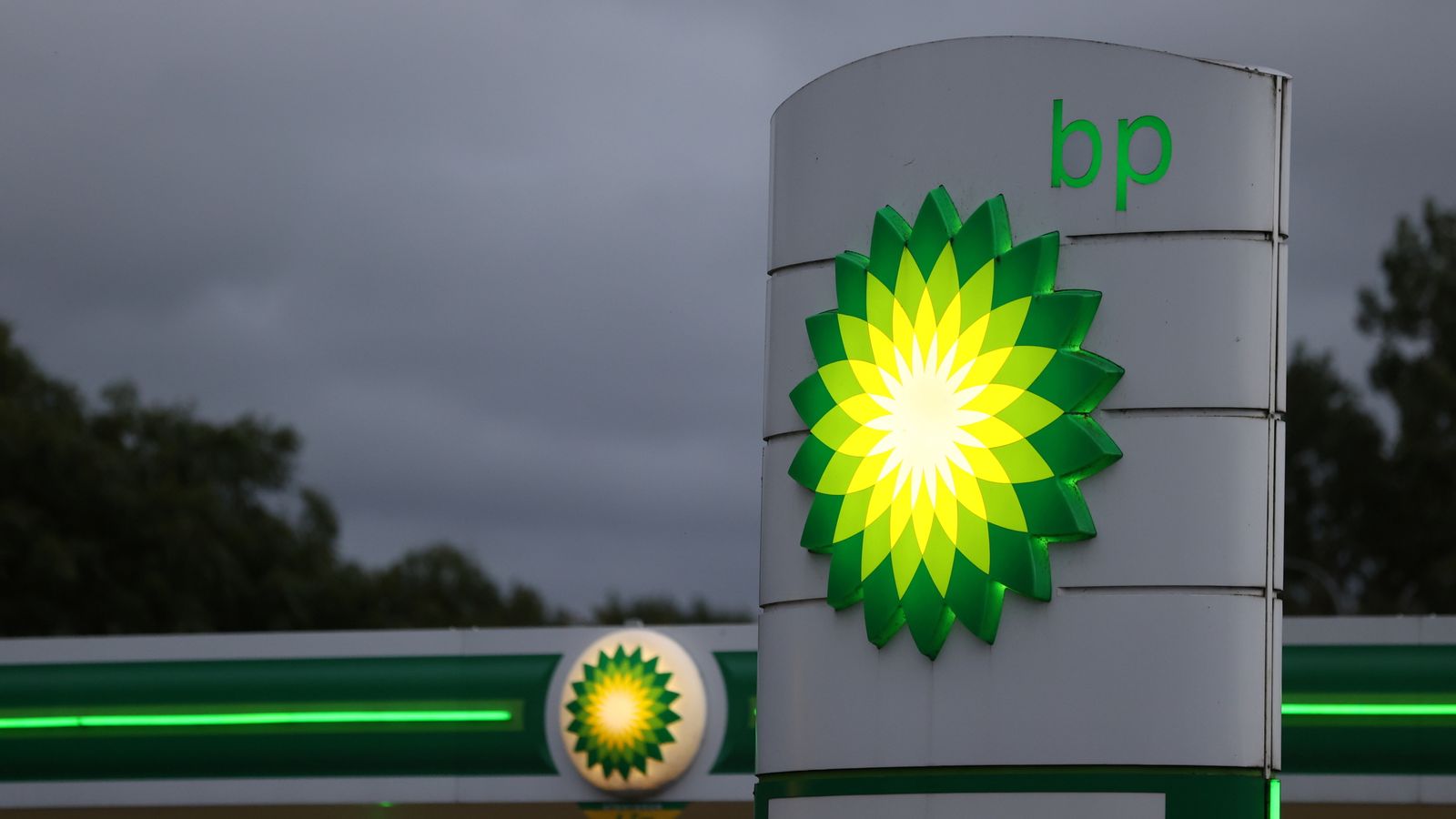BP has reported a second-quarter profit of £6.9bn ($8.45bn) – its highest in 14 years – at a time when consumer fuel prices have been at record highs.
BP’s underlying replacement cost profit, the company’s definition of net earnings, was the strongest since 2008 and far exceeded analysts’ expectations of £5.6bn ($6.8bn).
That compares to a £5.12bn ($6.25bn) profit in the first three months of 2022 and £2.29bn ($2.8bn) a year earlier.
It comes as UK households face a rapidly-worsening cost of living crisis, with rising wholesale energy prices being a major factor.
Households across Britain were warned on Tuesday that annual energy bills could increase to an average of £3,615 this winter, after energy consultant Cornwall Insight increased its previous prediction by hundreds of pounds.
It also comes days after record profits were reported by rival Shell, as well as the two largest US oil companies – Exxon Mobil and Chevron.
BP said on Tuesday that it had increased its dividend by 10% to 6.006 cents per share – more than its previous guidance of a 4% annual increase.
But it did take a £19.9bn ($24.4bn) hit after ditching its near-20% stake in Russian oil producer Rosneft in response to the Ukraine war.
BP chief executive Bernard Looney said: “Today’s results show that BP continues to perform while transforming.
“Our people have continued to work hard throughout the quarter helping to solve the energy trilemma – secure, affordable and lower carbon energy.
“We do this by providing the oil and gas the world needs today – while at the same time, investing to accelerate the energy transition.”
The record cash flowing into energy companies has reignited calls for a tougher windfall tax on additional profits on oil and gas, the prices of which have soared as Russia invaded Ukraine and threatened to cut off gas supplies to Europe.
‘People need greater protection’
Rachel Reeves MP, Labour’s shadow chancellor, said: “People are worried sick about energy prices rising again in the autumn, but yet again we see eye-watering profits for oil and gas producers.
“Labour argued for months for a windfall tax on these companies to help bring bills down, but when the Tories finally u-turned they decided to hand billions of pounds back to producers in tax breaks. That is totally wrong.
“It’s clear people need greater protection from rising bills. That’s why Labour would use this money now to help people get through the winter.
Read more:
Everything you need to know about windfall tax
Asda cuts petrol and diesel prices to ‘help motorists save money’
Nine tips to reduce how much petrol or diesel you use
“But we can’t carry on like this. Labour would bring down energy bills for good with a green energy sprint for home-grown power, and a 10-year warm homes plan to cut bills for 19 million cold, draughty homes.”
‘Laughing all the way to the bank’
Doug Parr, chief scientist for Greenpeace UK, said: “While households are being plunged into poverty with knock-on-impacts for the whole economy, fossil fuel companies are laughing all the way to the bank. The government is failing the UK and the climate in its hour of need.
“Government must bring in a proper windfall tax on these monster profits and stop giving companies massive tax breaks on destructive new fossil fuel investments.
“This could unlock billions of pounds to alleviate household bills and fund a nationwide roll-out of home insulation which would keep bills low for good and get our UK fossil gas use under control.”

